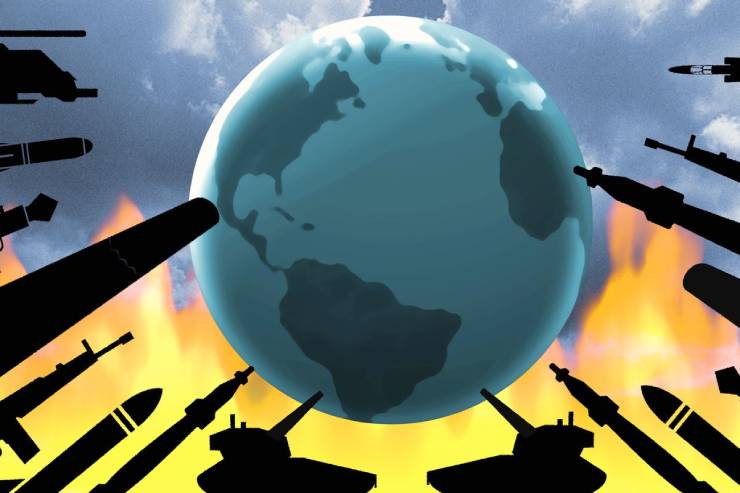US has announced its exit from the pact alleging that India and China has not adopted significant measures to clean their air. He has directly attacked India, which is painstakingly taking all the efforts to curb the emissions as per the commitments made even after resolving internal issues and turmoil’s on a daily basis. Mr Trump has decided to exit the pact as soon as he gets reelected elected in the forthcoming US elections. With the signing of this accord in 2015, a wave of optimism flowed then but now if US exits the pact, we won’t be witnessing the same momentum ever.
India and EU, even in this COVID situation, has not forgotten to enhance cooperation, strengthen and deepen their dialogue in climate change. India is preparing for a bigger role in the emerging world order. Covid has taught us that isolation and exclusive politics can never be a tool for development. As the world is shifting towards India, EU can be our natural ally in fighting the pandemic as well curbing emissions.
The recently held fourth edition of Ministerial virtual meeting on climate change co- chaired by EU, China and Canada exchanged views on how country should align their economic recovery plans in context with The Paris agreement. India, represented by the Union environment minister seems very serious in not only achieving the desired targets but also ready to take on path that would exceed the expectations.
Further, at the 15th India – EU summit, both sides agreed to Clean Energy and Climate Partnership, reaffirming their commitment to the implementation of the Paris Agreement. Before delving into the future projections. We should first assess the current achievements of India in fighting global warming. In five years, it has reached to a certain extent where we could possibly go for a partnership with the global leader like EU and US.
Till now, India has made significant efforts towards realizing the goals set in Paris. If we assess the contributions made towards the pact, India has done reasonably good. Few of the milestones can be jotted down.
• Achieved a reduction of 21% in emission intensity of of its GDP between 2005 and 2014, thereby achieving its pre-2020 voluntary target.
• Renewable energy installed capacity has increased by 226% in the last 5 years and stands more than 87 Gigawatt.
• Provided 80 million LPG connections in rural areas under the PAHAL scheme, ensuring clean cooking fuel and healthy environment.
• More than 360 million LED bulbs have been distributed under the UJALA scheme that tantamount to energy saving of about 47 billion units of electricity per year and reduction of 38 million tonnes of CO2 per year.
• In terms of Forest Cover, recent estimates suggest 24.56% of the total geographical area of the country.
• Leapfrogged from Bharat Stage-IV (BS-IV) to BS-VI emission norms by April 1, 2020 which was earlier to be adopted by 2024.
• Under Smart Cities Mission – Climate Smart Cities Assessment Framework 2019 has been launched
Paris Agreement was an historical accord signed in 2015 that brings onboard 200 countries in setting a common goal towards reduction in green emissions in order to curb global warming. The significant pact seeks to keep the global temperature below 2 degree Celsius from pre-industrial levels with an ambitious yet achievable target of 1.5 degree Celsius.





